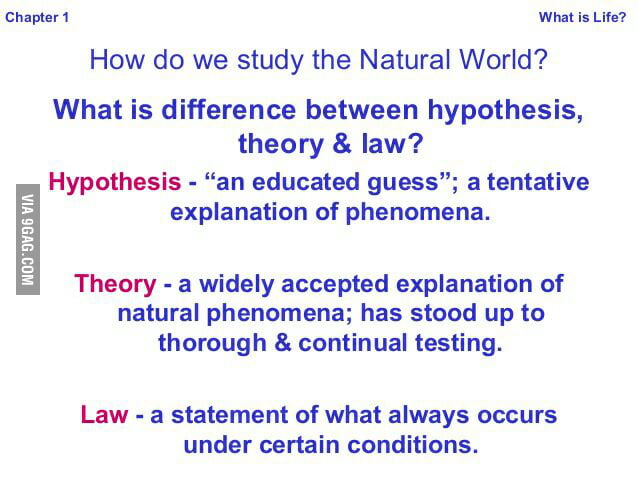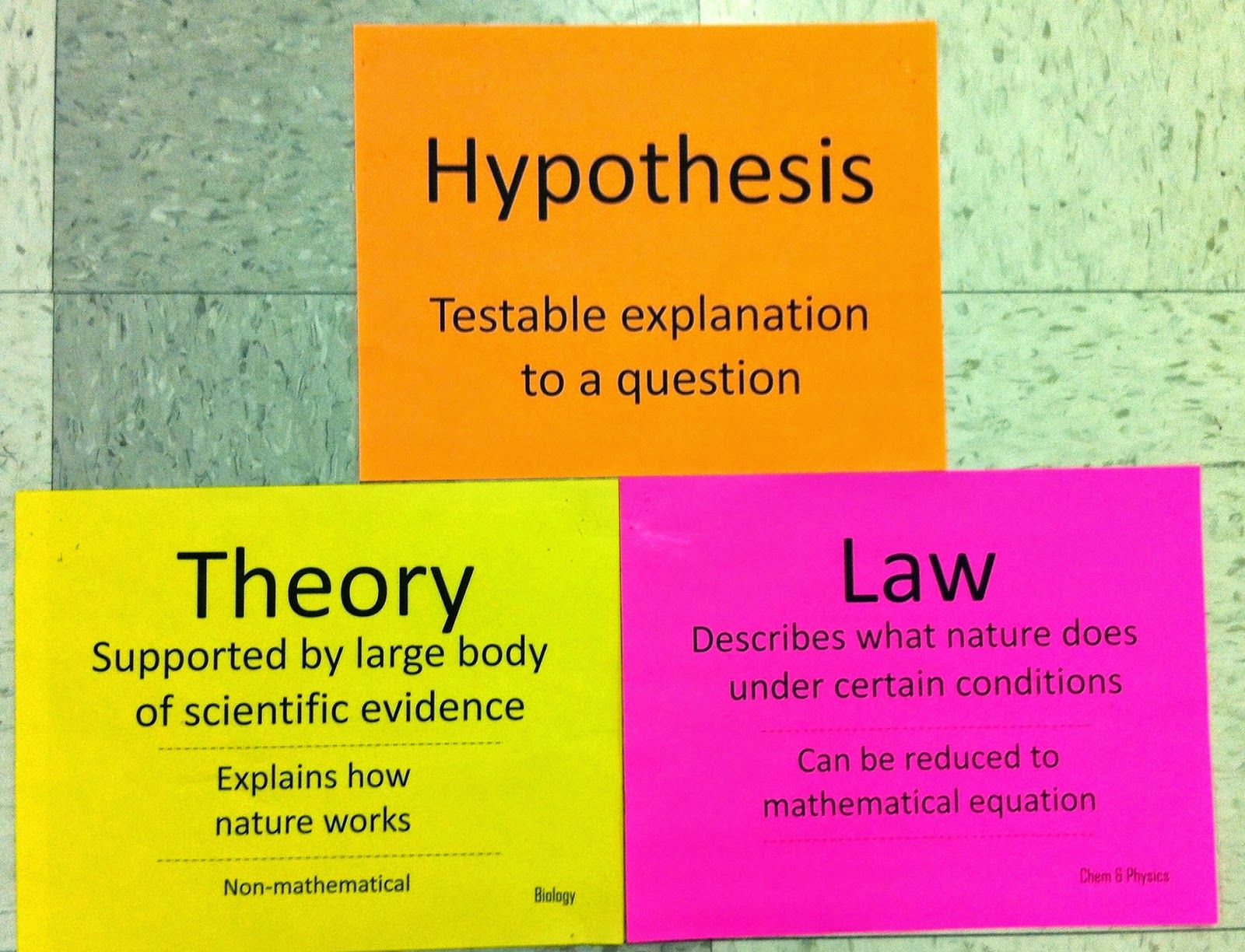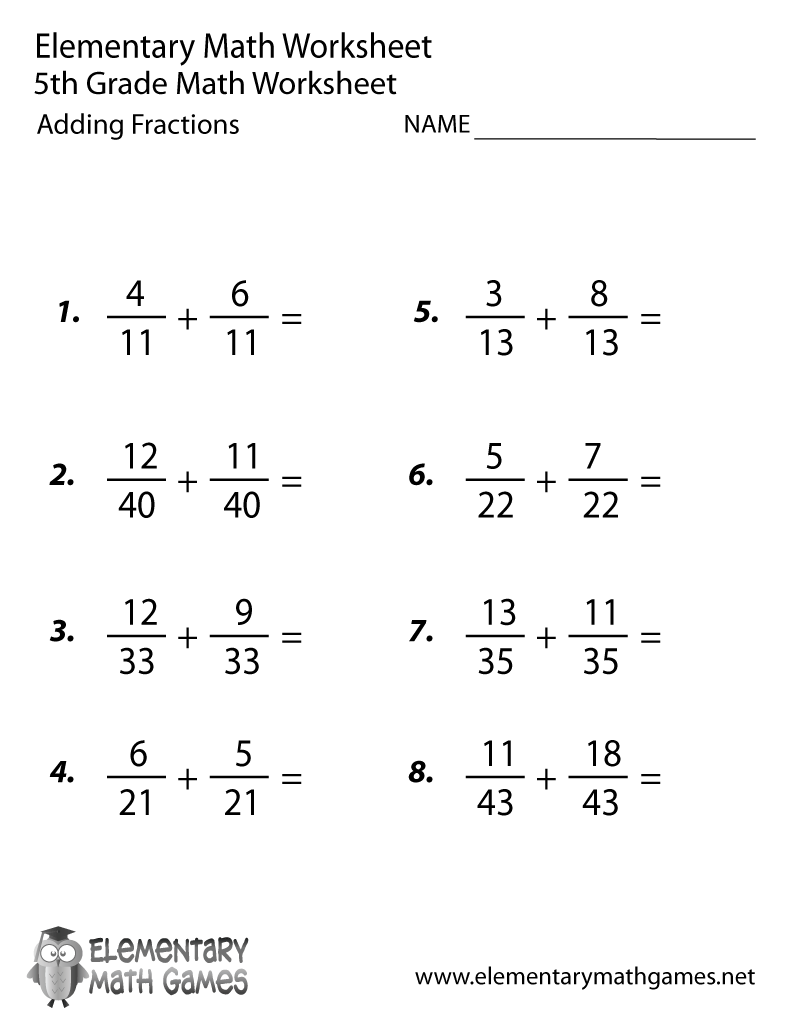5 Key Differences Between Hypothesis Theory and Law

Understanding the Foundations of Scientific Inquiry
In the realm of scientific inquiry, it is crucial to differentiate between three fundamental concepts: hypothesis, theory, and law. While these terms are often used interchangeably, they have distinct meanings and roles in the scientific process. In this article, we will delve into the five key differences between hypothesis, theory, and law, providing a comprehensive understanding of each concept.
Hypothesis: An Educated Guess
A hypothesis is an educated guess that attempts to explain a phenomenon or answer a question. It is a tentative explanation that is based on limited data or observations. A hypothesis is often formulated in response to a problem or an observation that requires further investigation. It serves as a starting point for scientific inquiry, guiding the researcher’s investigation and experimentation.
💡 Note: A hypothesis is not a proven fact, but rather a suggested explanation that requires testing and validation.
Theory: A Well-Substantiated Explanation
A theory, on the other hand, is a well-substantiated explanation for a set of phenomena. It is a comprehensive framework that explains a particular aspect of the natural world. A theory is developed through the accumulation of evidence from multiple lines of research and is supported by a large body of data. Theories are not simply speculative ideas, but rather, they are rigorously tested and validated explanations that have withstood the scrutiny of the scientific community.
🔍 Note: Theories are not "just a theory," but rather, they are well-established explanations that have been extensively tested and validated.
Law: A Mathematical Description
A law, in the context of science, is a mathematical description of a specific phenomenon. Laws describe the underlying patterns and relationships that govern the natural world. They are often expressed as mathematical equations or formulas that describe the behavior of a particular system or phenomenon. Laws are not explanations, but rather, they are descriptive statements that summarize the behavior of a particular aspect of the natural world.
📊 Note: Laws are not theories, but rather, they are mathematical descriptions that summarize the behavior of a particular phenomenon.
5 Key Differences Between Hypothesis, Theory, and Law

| Hypothesis | Theory | Law | |
|---|---|---|---|
| Definition | An educated guess that attempts to explain a phenomenon | A well-substantiated explanation for a set of phenomena | A mathematical description of a specific phenomenon |
| Purpose | To guide investigation and experimentation | To provide a comprehensive explanation for a set of phenomena | To describe the underlying patterns and relationships that govern the natural world |
| Level of Evidence | Limited data or observations | A large body of evidence from multiple lines of research | Extensive mathematical and empirical evidence |
| Testability | Can be tested and validated through experimentation | Can be tested and validated through experimentation and observation | Can be tested and validated through mathematical and empirical evidence |
| Scope | Narrow and specific | Broad and comprehensive | Specific and mathematical |
Conclusion
In conclusion, understanding the differences between hypothesis, theory, and law is essential for effective scientific inquiry. By recognizing the distinct roles and characteristics of each concept, researchers can develop well-informed hypotheses, rigorously test and validate theories, and accurately describe the natural world through mathematical laws. By embracing these fundamental concepts, we can advance our knowledge and understanding of the world around us.
What is the primary difference between a hypothesis and a theory?
+A hypothesis is an educated guess that attempts to explain a phenomenon, while a theory is a well-substantiated explanation for a set of phenomena.
What is the purpose of a law in science?
+The purpose of a law in science is to provide a mathematical description of a specific phenomenon, summarizing the underlying patterns and relationships that govern the natural world.
Can a hypothesis be proven true?
+No, a hypothesis cannot be proven true. Instead, it can be supported or rejected through experimentation and observation.
Related Terms:
- Theory vs law worksheet PDF
- Hypothesis, theory law
- Worksheet hypothesis or theory



